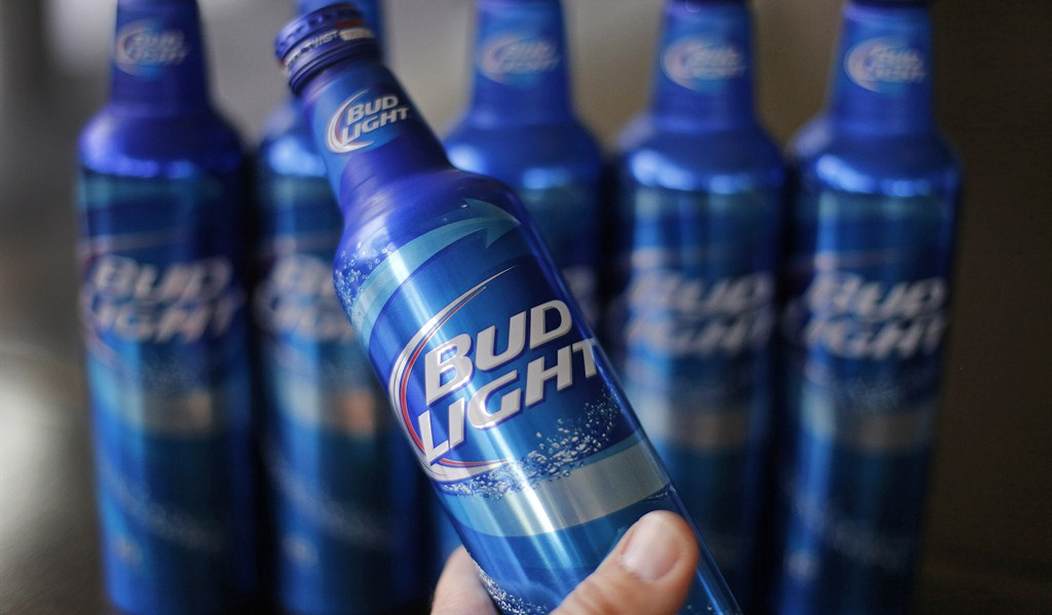Anheuser-Busch didn’t get to be the number one brewer in the world by misreading its target audience. And Bud Light didn’t get to be the number-one-selling beer in America by ignoring the sensibilities of its customers.
And yet, here we are. Three weeks ago, the controversy over transgender activist and influencer Dylan Mulvaney was sparked by Mulvaney’s marketing partnership with Bud Light during the NCAA Basketball Tournament. And during the week ending April 15, sales of Bud Light dropped 17%, according to data from NielsenIQ and Bump Williams Consulting.
“These numbers are staggering,” according to an April 23 report from Insights Express. “Right now this is an extremely difficult scenario for Anheuser Busch, the Bud Light brand and for AB distributors.”
It’s a “difficult scenario” they brought upon themselves. The marketing executives responsible for tapping Mulvaney — Alissa Heinerscheid and Daniel Blake — are taking “leaves of absence.” Their return will probably depend on whether the brand recovers or not.
And right now, it looks bad.
Some distributors have even canceled events featuring the beloved Clydesdale draft horses — something that no doubt has the Bush family wringing their hands. The distributors say they “are looking for a much more pointed and well-developed plan on how Anheuser-Busch might stem the onslaught of negative attention and sales trends,” according to Insights Express.
During the NCAA basketball tournament from March 18 to April 1, it was the clear leader of all light beers at bars and other venues, up 15%, according to Brewbound, a trade publication which cited data from BeerBoard. But after the Mulvaney campaign launched, demand for Bud Light trailed other light beers by 6% at bars and restaurants.
Overall, Bud Light’s volume declined by 34.7% at bars, restaurants and other venues between April 2 and April 15, according to BeerBoard. Bud Light dropped to the No. 4 draft beer from No. 3 during the second week of the controversy, switching places with Coors Light, Brewbound reported on Monday.
As Bud Light sales sag, other light beers are rejoicing as they’re seeing huge increases in sales.
Data compiled for the week showed Coors Light and Miller Lite’s dollar share went up 3.5% and 3.1% respectively, suggesting Bud Light’s losses in dollar share resulted directly from consumer recoil rather than a lapse in beer demand, the report continued.
Over the same period, Coors Light cases went up 10.6% and Miller Lite jumped 11.5%.
Meanwhile, Bud Light cases have fallen 6.7% year-to-date, 10.7% for the week ending on April 8, and more than 21% for the week ending on April 15.
Bud Light’s brand loyalty has been impressive over the years. But surely some of these Bud Light customers are never returning. And this marketing ploy may eventually be placed right up there with “New Coke” and Gap’s logo redesign as well as other colossal marketing mistakes made by businesses that wildly overestimated their own intelligence.
Related: LOL! Anheuser-Busch Really Thinks This Move Can Save Them
How could Bud Light have gotten it so wrong? How could they have risked their brand so recklessly?
The media mirage that was crafted to create the impression of transgender acceptability ended up trapping the two Bud Light marketing executives — Alissa Heinerscheid and Daniel Blake — in a web of their own hubris. Whatever surveys they were reading that told them using Dylan Mulvaney to sell beer was worth the expense during one of the most-watched sporting events in America — the Final Four NCCAA Basketball Tournament — and to launch a campaign that wouldn’t appeal to men or most women weren’t asking the right questions.
They turned “edgy” into anger. And getting customers angry at your product is never a good idea.
And now AB has a real mess on their hands as they try to contain the damage so it doesn’t infect any of their other brands. Transgender spokespeople may work with niche products marketed specifically for young people. But for a national brand, transgendered spokespeople are still not accepted and won’t be anytime soon.










Join the conversation as a VIP Member